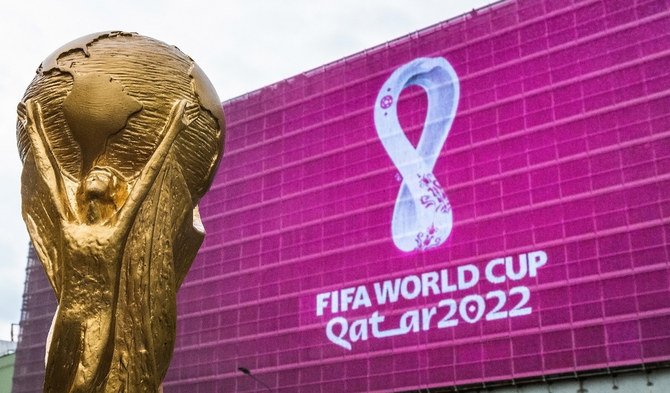RIYADH: The economic growth of Qatar has normalized after the country’s strong fiscal performance in 2022, driven by the FIFA World Cup, according to the International Monetary Fund.
In its consultation report released on Nov. 21, the IMF disclosed that Qatar’s economic outlook in the medium term seems favorable, with output expected to expand by about 1.75 percent per annum during 2023–25.
It further revealed that the medium-term expansion would be fueled by the nonhydrocarbon sector, which is expected to grow at 2.75 percent, driven by domestic demand.
“Qatar’s economic growth has normalized in 2023 following the World Cup-driven boom. Medium-term growth is set to increase to around 5 percent per annum supported by LNG production expansion,” said IMF in the report.
The report added that the country’s reform to achieve its National Vision 2030, which aims to ensure sustainable development by the end of this decade and is guided by the Third National Development Strategy, will also start to bear fruit.
The IMF added that inflation in Qatar will likely moderate to 2 percent this year, while fiscal and current accounts are projected to remain in surpluses over the medium term.
Qatar’s Planning and Statistics Authority also revealed on Nov. 15 that higher expenses toward communication, recreation and food led the country’s inflation to rise 2.52 percent in October on an annual basis.
Additionally, the IMF report said that inflation has moderated following monetary policy tightening in tandem with the US Federal Reserve, consistent with the currency peg to the US dollar.
“Broad fiscal discipline amid sizeable hydrocarbon windfalls in 2022–23 has strengthened fiscal position significantly and is commendable. Continued fiscal prudence is expected under the upcoming 2024 budget,” added the IMF.
According to the IMF, the Qatar Central Bank has successfully maintained price and financial stability.
Moreover, the banks in Qatar remain healthy, although the non-performing loan ratio has increased as pandemic-related restructured loans turned non-performing.
“The QCB has refined macroprudential measures to reduce further risks associated with banks’ external asset-liability mismatches, especially those of short maturities, which is welcome,” noted the IMF.
The agency also pointed out that continued diligence is critical to strengthening the banking sector in a “higher-for-longer” interest rate environment.
Source: Arab News



